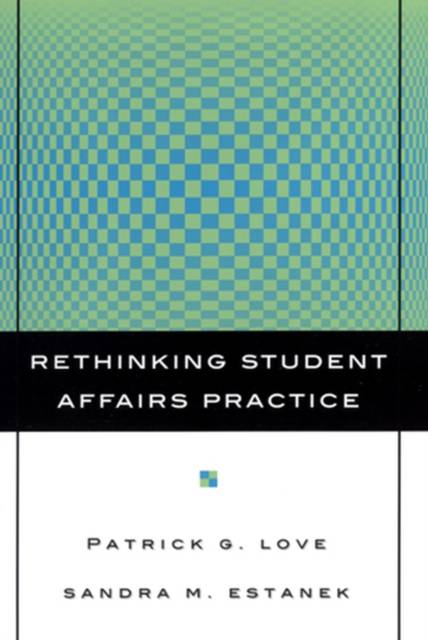
- Retrait gratuit dans votre magasin Club
- 7.000.000 titres dans notre catalogue
- Payer en toute sécurité
- Toujours un magasin près de chez vous
- Retrait gratuit dans votre magasin Club
- 7.000.0000 titres dans notre catalogue
- Payer en toute sécurité
- Toujours un magasin près de chez vous
Description
To be effective managers, student affairs professionals must understand the structures and processes that form the organizational context in which they work, and must be able to work within them. These structures are often characterized by a rigid division of labor and an expectation that good managers can predict the outcomes of their efforts and can and should exercise control over the inputs. However, to be effective leaders, they must be able to perceive new possibilities beyond those structures and expectations. How can they do both?
Rethinking Student Affairs Practice offers an answer to that question. Love and Estanek challenge their readers to perceive their responsibilities, institutions, and relationships through multiple lenses. They have developed a model for change based in four concepts that will help their readers do this. The four concepts are valuing dualisms, transcending paradigms, recognizing connectedness, and embracing paradox.
Spécifications
Parties prenantes
- Auteur(s) :
- Editeur:
Contenu
- Nombre de pages :
- 256
- Langue:
- Anglais
- Collection :
Caractéristiques
- EAN:
- 9780787962142
- Date de parution :
- 05-04-04
- Format:
- Livre relié
- Format numérique:
- Genaaid
- Dimensions :
- 157 mm x 240 mm
- Poids :
- 426 g

Les avis
Nous publions uniquement les avis qui respectent les conditions requises. Consultez nos conditions pour les avis.






